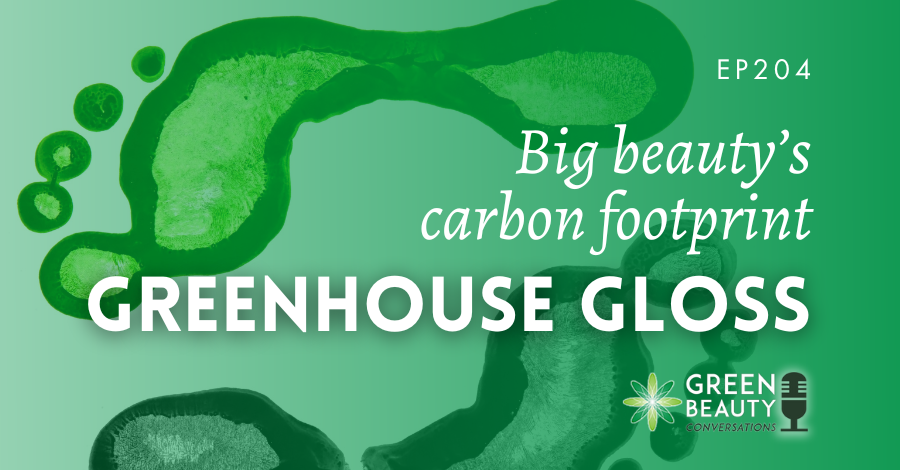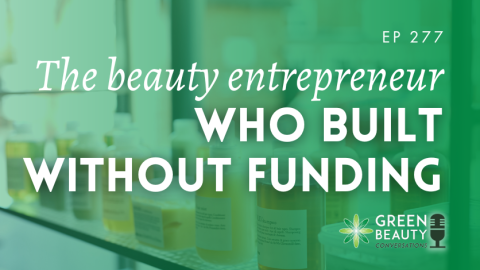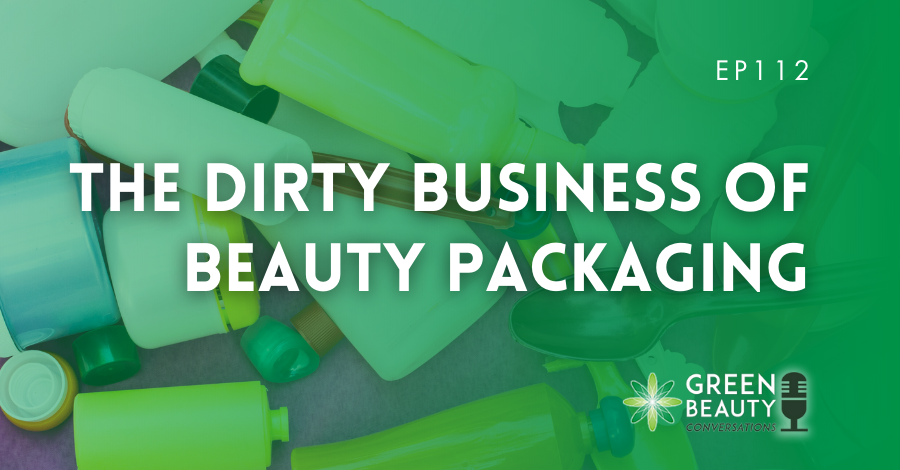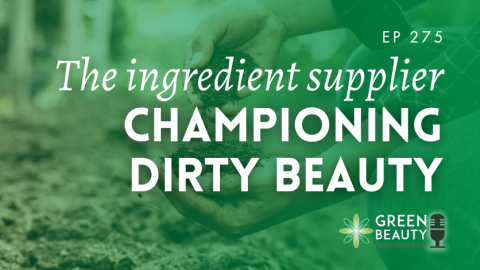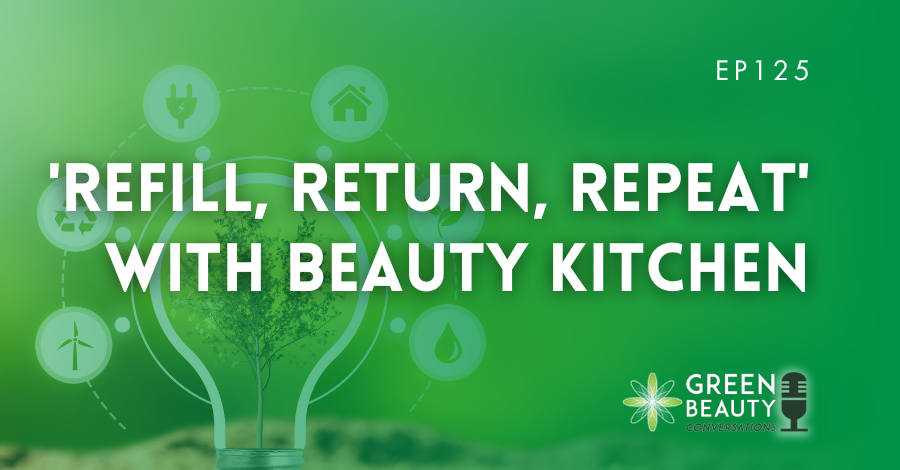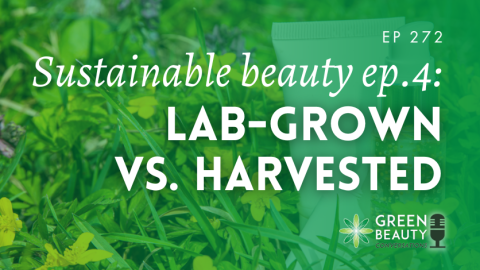In our last episode, host Lorraine Dallmeier had a fascinating discussion with Joel Tasche, Founder of CleanHub, on the beauty industry’s sustainability challenges, in particular its commitment to reducing its reliance on plastic, which has a huge carbon footprint from cradle to grave.
Building on that conversation, today’s episode takes a close look into a groundbreaking 2023 report by the Carbon Trust, provocatively titled “Greenhouse Gloss – Is the beauty industry’s commitment to tackling climate change more than skin deep?” If you missed Lorraine’s chat with Joel Tasche, be sure to catch up, as it sets the stage for her exploration in this Green Beauty Opinion episode of the beauty industry’s damning environmental impact – and how we can hold them accountable.
Inspiring quote:
“As shoppers, are we assessing the sustainability credentials of our beauty products correctly? Remember, we can hold beauty companies accountable and vote with our wallets.” – Lorraine Dallmeier
Key takeaways include:
- Top 10 cosmetic brands exposed: The Carbon Trust report scrutinised the sustainability efforts of global giants such as L’Oréal, Unilever, Procter & Gamble, and more. Shockingly, the report highlighted these industry leaders’ limited recognition of their role in causing climate change. They focus on presenting themselves as part of the solution rather than acknowledging their historical contributions to the problem.
- Operational vs. raw material emissions: While these cosmetic giants emphasise reducing operational emissions, the report reveals a significant oversight – minimal attention to emissions from sourcing raw materials. This blind spot represents 30-50% of direct greenhouse gas emissions from the cosmetics industry.
- Ingredient sourcing: Only one out of the ten companies committed to reducing their demand for natural resources, and a mere three had clear targets to eliminate deforestation from their supply chains. This lack of commitment is particularly concerning given the enormous impact of these brands on the environment.
- Net Zero targets and emissions reporting: Astonishingly, not a single company among the top ten had an externally validated Net Zero target. The Carbon Trust criticised incomplete emissions reports, citing the absence of complete Scope 3 emissions, which account for customer use of finished cosmetic products. This highlights a lack of credible commitment to addressing emissions from consumer use.
- Call to action: The report challenges consumers to scrutinise the impacts of their purchases. By downloading and reading the Carbon Trust report, we empower ourselves to make informed choices and hold these industry giants accountable. Remember, your voice matters, and collective action can drive real change in the beauty industry.
Let’s be conscious consumers, informed by the facts presented in the Carbon Trust report and consider the implications of the beauty industry’s impact on our environment. It’s time to demand transparency, support brands pioneering sustainable beauty, and collectively influence positive change. Your choices matter – let’s make them count and hold big beauty accountable.
Find out more:
The Carbon Trust
There’s a wealth of information in our old episodes and we encourage you to go back and listen to them. If you want to hear more about some of the topics we cover in this episode, please do delve back into the podcast archives. Go and listen to:
Episode 50: Can a beauty brand ever be carbon neutral?
Episode 87: Selling skincare while sinking carbon – is this possible? – interview with BYBI co-founders Dominika Minorovic and Elsie Rutterford about how their indie beauty brand is carrying out sound plans to sink carbon while successfully selling skincare.
Thank you for joining us for this episode of the Formula Botanica Green Beauty Conversations podcast. If you enjoyed listening, please share, subscribe and review this episode on Apple Podcasts, Spotify or Youtube so that more people can enjoy the show. Don’t forget to follow and connect with us on Facebook and Instagram.
FREE TRAINING
Learn how to become an
Organic Skincare Formulator
FREE TRAINING
How to become an
Organic Skincare Entrepreneur
FREE TRAINING
How to become an
Organic Skincare Entrepreneur
Leave us a comment
Lorraine Dallmeier is a Biologist, Chartered Environmentalist and the CEO of Formula Botanica, the award-winning online organic cosmetic science school. Read more about Lorraine and the Formula Botanica Team.

